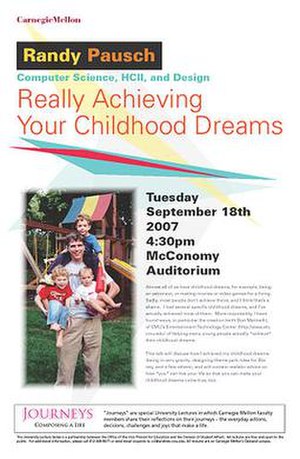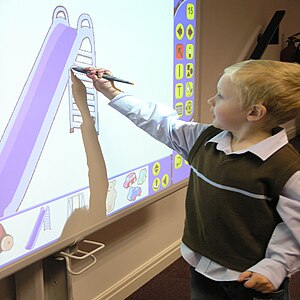 Image via WikipediaI once had a nightmare where I was one of Jaw's victims and the camera was angled under the water from the point of view of the shark. I heard the chilling dum-dum, dum-dum, dumdumdumdum, duuuuuuum as the shark edged closer and closer to my kicking legs and then suddenly...I wasn't in the water anymore and instead of a shark...there were high schoolers.
Image via WikipediaI once had a nightmare where I was one of Jaw's victims and the camera was angled under the water from the point of view of the shark. I heard the chilling dum-dum, dum-dum, dumdumdumdum, duuuuuuum as the shark edged closer and closer to my kicking legs and then suddenly...I wasn't in the water anymore and instead of a shark...there were high schoolers.And I was the teacher about to be bitten in half. Shrieeeeeeeek!
Needless to say, that dream terrified me for a day or two, and I thought about changing my major until I realized those kids couldn't possibly catch me on land. I'm a pretty fast runner when confronted with shark-people.
Anyway, when I read Mr. McClung's blog post about his first year teaching, I had another flashback to that nightmare, only it wasn't as terrifying as I had remembered. Since that awful night and two days following it, I've come to the realization that often my fears are unfounded.
All the silly fears that plague me are often just that--silly. I'm not going to say that I'm not a little worried about if I will do a good job of teaching those future students what they need to succeed and move on in their lives, but I can agree that Mr. McClung's discoveries are some that all teachers have to make at some point or another.
Control is just an illusion.
As someone with plenty of experience trying to control everything in her own life, I can tell you that being in control does not mean you're being productive or making yourself or anyone else happy. In fact, you might just be doing more harm than good.
If you expect too much out of someone--least of all yourself--you will always end up disappointed with the outcome. That's no way to live life, much less teach. Mr. McClung is right; no one is perfect, not even ourselves. So how can we expect our students to get everything right if we don't adjust our expectations for their successes to reasonable goals?
Truth? We can't. Sometimes if expectations are set too high, people don't even bother trying. It's a fact.
One of my biggest fears deals with my students not listening to me. I fret that I won't be heard or that somehow I'll start speaking in tongues in the middle of a lesson and never know it. (Fortunately, I think that last one might have also been in a dream, so it's possible it might never happen. Right?)
Yet, even as I worry about not being heard, I remember what it was like being a student--it wasn't that long ago, although it feels like forever--and that same fear pervaded my thoughts back then. Will my teacher hear me? Will what I have to say be heard?
Mr. McClung stresses communication and listening, as do I, because those things are vital in the two-way street that is education. Sure, it would be cool if students were capable of hearing something once and able to regurgitate it back whenever they needed to. Realistically however, we know that never happens, and if it did, it would be like an episode from The Twilight Zone and that poor kid might end up in a laboratory somewhere in Area 51. (Geez, I'm dramatic today.)
As teachers, we have to be willing to listen to our students and to adapt our teaching practices to better suit their needs. I think that of all the professions in the world, teachers should be foremost in adaptability and innovation. Apple should be coming to us for cool ideas for projects. We should be the ones making executive decisions on committees or lounging in the Oval Office. (Yes, I am saying that an educator should run for president. Who else thinks this is a good idea?)
Education is a field that is steeped in learning, at least last I checked, and as such, it means educators have an obligation to stay at the forefront of not only subject matter relevant to students, but also technology that is currently in use. It's not only beneficial in keeping the teachers up to date on trends and student concerns, but also keeps education from being dated. This goes back to Mr. McClung's first point about reading the crowd. You have to know what is effective and what isn't in order to get through to people, and to make the lessons "student centered."
It's the 21st century people. Time to up the ante. We don't have all century to be where we should be already. Just saying.






